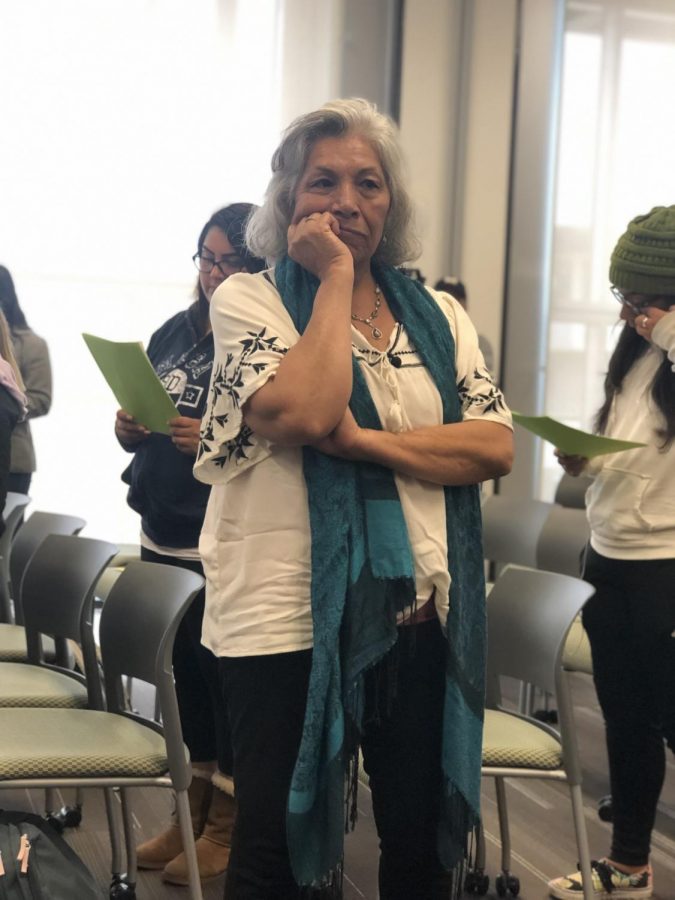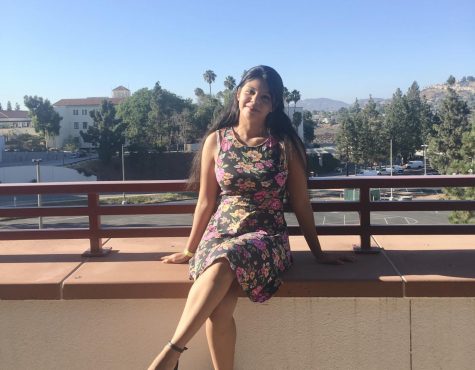In honor of Women’s History Month, Sylvia Enrique was a guest for the eighth annual Gracia Molina De Pick Feminist Lecture Series. Enrique is an actress, producer, and directed play. During her lecture, she shared with Mesa students the importance of our voices through the power of art.
In order to set her stage, Enrique had students “perform” a brief history lesson on Teatro Campesino, which translates to “the farmer’s theater.” Enrique attempted to define Teatro Campesino as she shared, “The Chicano theater (referring to Teatro Campesino ) … was born out of struggle to be heard.” A struggle that can still be experienced in modern day society by our Chicano and Feminist community. Struggles such as unequal pay, sexism, racism and the overall hardship of having their voices be heard after many years.
Enrique made students see a lifetime as they wrote one word at a time, through an exercise. As students wrote, Enrique gave the reminder of the importance behind the trust of oneself, our neighbors and herself. The words that were written were described once again as a performance by Enrique as she read the work that was produced, from the students “Don’t be afraid of your work, Leave it open, let it fly.”
As these stories were read to the rest of the audience, there were similarities within the work of the student. Through the voice of Enrique, the realization of how much the people in the room shared human desires and the fight we may be put into every day. The compilation of stories shared through words will be made into a poem that will be later written by Sylvia Enrique. The works touched topics such as change, hard work, connection, etc. The Teatro Campesino being born out of wanting to have a connection and sharing a connection on stage. Erique shared the example of seeing a mistake during a play. She mentions, “(Mistakes on stage are made) because they weren’t taking care of each other. . . Acting requires you to jump right in no matter what.”
This example came to life as she asks students to perform what she would whisper to the individuals. On the spot with the student volunteers, she directed and performed an improvised one act. Enrique emphasized the importance of the body, the voice, and the overall enjoyment that comes when one is involved with theater. Theater, just like Teatro Campesino, could take place anywhere when people want to connect and share their stories, As Enrique put into words, “Teatro (could be) under a parking lot, a fancy theater, or the back of a truck just was the Campesinos started.” A reminder from Chicano history that art can be anywhere with anyone at any time.




